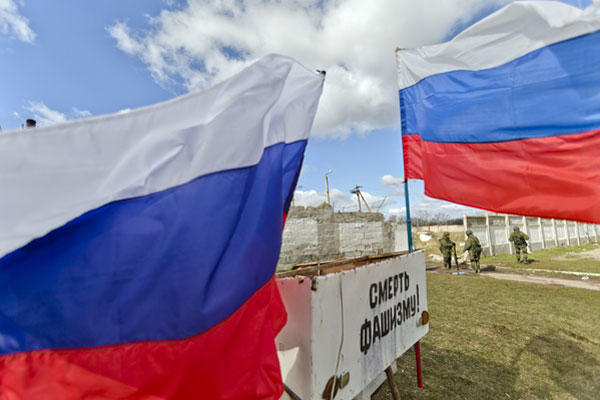Russia reportedly has made a new threat to begin "destabilizing actions" in the Baltic republics of Estonia, Latvia, and Lithuania if NATO moved more forces into those countries.
If the Russian threat is carried out, it could represent the greatest challenge to the 28-member military alliance's doctrine of mutual self-defense since its founding in 1949. Estonia, Latvia, and Lithuania joined NATO simultaneously in 2004.
Moscow's position was communicated to U.S. officials by Russian generals at a meeting in Germany last month, according to The Times of London, which claimed to have seen notes on the meeting made by an American participant. Most notably, the paper reported that Russian representatives threatened a "spectrum of responses from nuclear to non-military" to NATO troop movements in the Baltics.
Western security officials say that the possible actions Moscow could be planning include cyberattacks or civil disturbances involving ethnic Russians in all three countries. Similar demonstrations were reported ahead of the Russian annexation of Crimea from Ukraine last year.
The Times reported that Russia warned that "the same conditions that existed in Ukraine and caused Russia to take action there" exist in the Baltic republics. However, the Times reported that the note suggested that Russia would not "[inject] troops and heavy weapons" into the region," but would favor "other tools."
The note adds that Russia would "hope slowly to entice those Russian populations towards Russia without giving NATO a pretext to deploy troops."
If NATO does respond to Russian activity in the region, the document says, Moscow would consider it to be "a potential co-aggressor against Russian-speaking minorities in Baltic states."
Western officials have been concerned that Russian president Vladimir Putin would attempt to bring the Baltics closer to Moscow's sphere of influence since the annexation of Crimea. Last month, a convoy of U.S. troops crisscrossed Eastern Europe in an effort to reassure allies.
The convoy was greeted warmly in the Baltics as well as in Poland and the Czech Republic, despite threats to block its path by pro-Russian activists on Facebook and in the media.
In January, NATO decided to set up command-and-control centers in Latvia, Estonia, Lithuania, Poland, Romania and Bulgaria by the end of 2016.




























